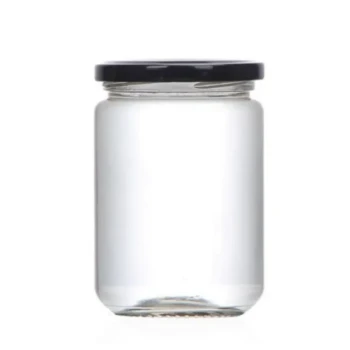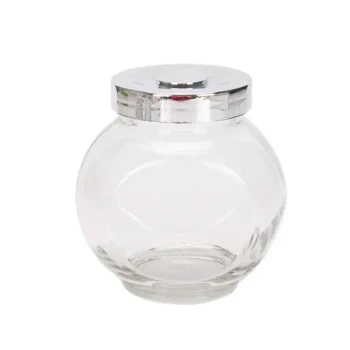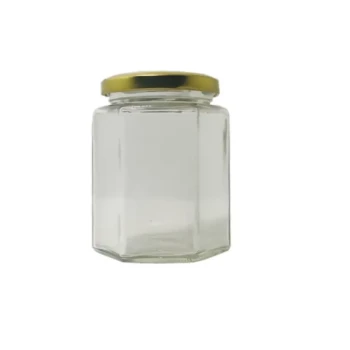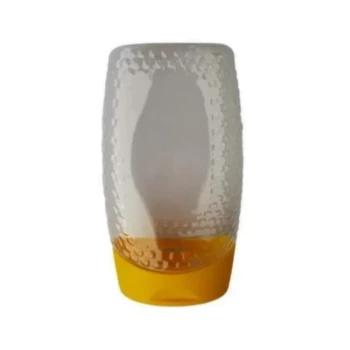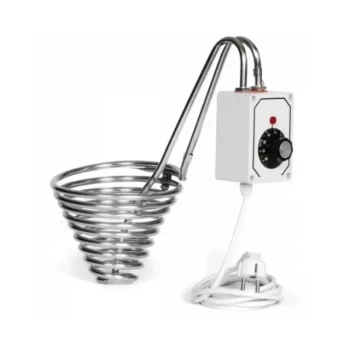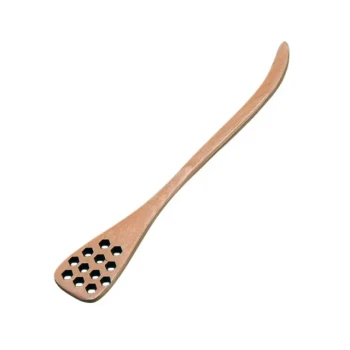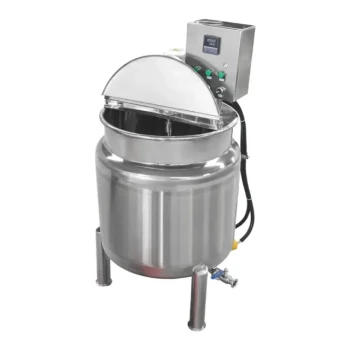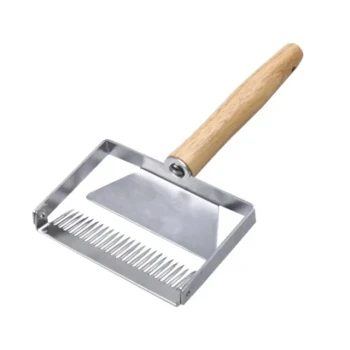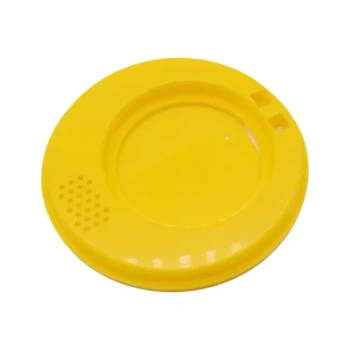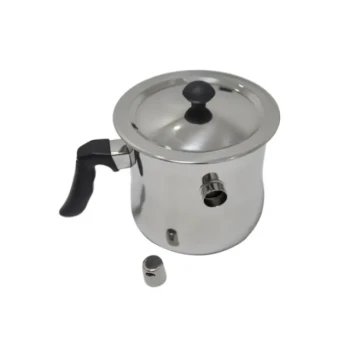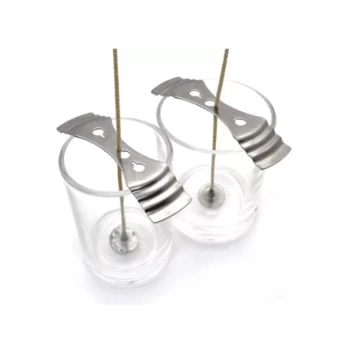Honey bees store honey in the hive for one primary reason: survival. It is their essential, concentrated food source, created specifically to sustain the colony through periods when they cannot gather fresh nectar from flowers.
The core function of honey is to serve as the colony's insurance policy against starvation. It provides the critical energy needed to survive not just winter, but any period of scarcity, ensuring the hive can power its essential functions year-round.
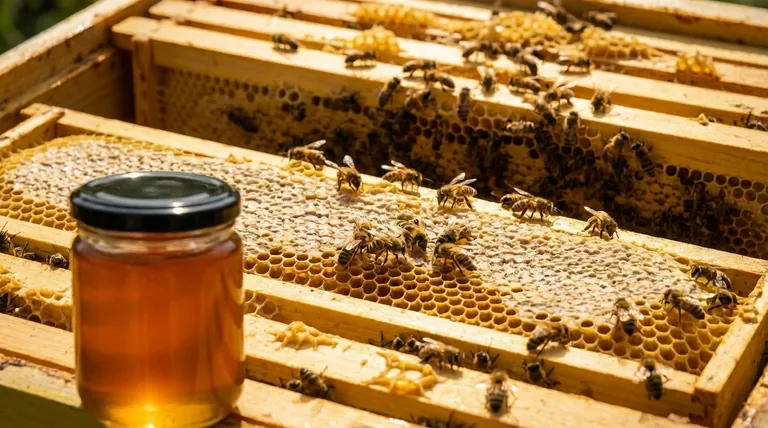
The Hive's Energy Bank: Honey as Survival Fuel
A honey bee colony operates as a single superorganism, and its ability to store food is central to its success. Unlike many other insects, honey bees do not hibernate; they remain active throughout the year.
Overcoming the Winter Challenge
The most critical period of scarcity is winter. During the cold months, there are no blooming flowers, and it is often too cold for bees to fly.
To survive, the bees form a tight winter cluster inside the hive. They flex their flight muscles to generate heat, maintaining a core temperature sufficient to keep the queen and the inner cluster alive. This act of generating heat consumes an immense amount of energy, which is fueled entirely by their stored honey.
Surviving Seasonal "Dearths"
Scarcity is not limited to winter. Even in spring and summer, there can be periods known as a nectar dearth.
A dearth occurs when there is a temporary lack of nectar-producing flowers, often due to drought, extreme heat, or a gap between major floral blooms. During these times, the colony's foraging income stops, and they must rely on their honey reserves to continue feeding the queen, raising new bees, and maintaining the hive.
Fueling a New or Struggling Colony
Honey stores are especially vital for a new or weakened hive. A young colony needs a massive amount of energy to build new wax comb, and the queen needs resources to lay thousands of eggs.
Having a reserve of honey allows them to focus on this crucial expansion without being completely dependent on day-to-day foraging conditions.
When Honey Reserves Are Not Enough
A colony's survival is directly tied to the adequacy of its honey stores. Depletion of this resource before foraging becomes possible is a primary threat.
The Inevitable Risk of Starvation
If a hive consumes all of its honey during winter or a prolonged dearth, the colony will starve. This is a common cause of colony loss, especially during unusually long or harsh winters.
Causes of Depletion
Several factors can lead to insufficient honey stores. This includes a poor nectar flow in the preceding summer, a colony that was too small to gather an adequate surplus, or a hive that has been weakened by pests or disease.
How to Apply This to Bee Behavior
Understanding why bees store honey is key to appreciating their behavior and the challenges they face.
- If you see bees foraging intensely in late summer: They are working against the clock to build up the critical winter food supply that will determine their survival.
- If you notice a beekeeper feeding a hive sugar water: They are likely supplementing a colony whose honey stores are insufficient to get them through a dearth or the upcoming winter.
- If a colony is thriving early in the spring: It is a direct result of having successfully managed its honey reserves to survive the cold months.
Ultimately, a full honeycomb is the engine of the honey bee colony's resilience and long-term success.
Summary Table:
| Reason for Storing Honey | Key Function |
|---|---|
| Winter Survival | Fuels the winter cluster's heat generation when no flowers are available. |
| Nectar Dearth | Sustains the colony during temporary shortages of blooming flowers. |
| Colony Growth | Provides energy for new colonies to build comb and raise brood. |
| Colony Resilience | Acts as an energy bank for the superorganism's long-term success. |
Ensure your apiary's success with the right equipment. Just as honey is vital for a bee colony's survival, having reliable, high-quality beekeeping supplies is essential for your commercial or wholesale operation. HONESTBEE supplies durable beekeeping supplies and equipment to commercial apiaries and distributors, helping you build resilient and productive operations. Contact HONESTBEE today to discuss your wholesale needs and keep your business thriving.
Visual Guide
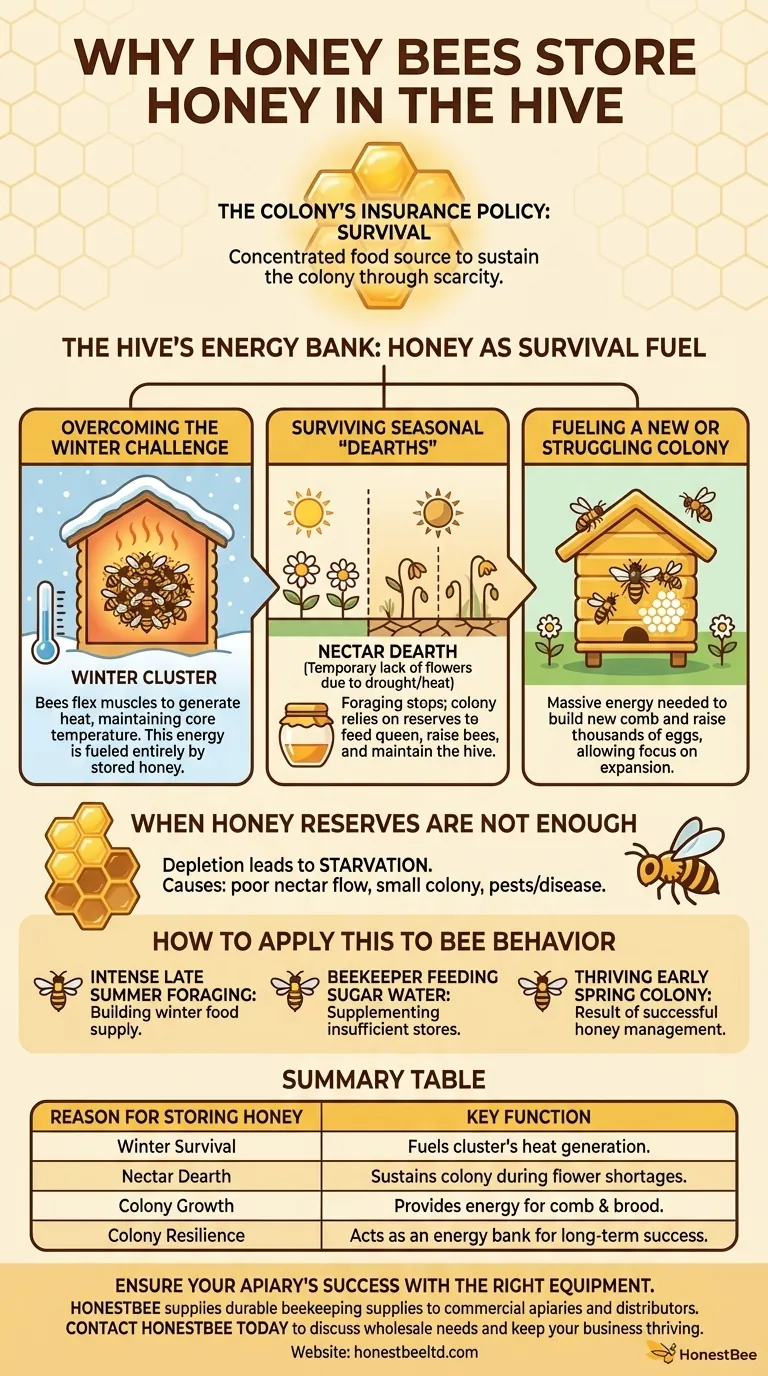
Related Products
- Classic Round Glass Honey Jar with Lid
- Classic Drum Shaped Glass Honey Jar with Airtight Lid
- Hexagonal Glass Honey Jars with Metal Lug Caps Elegant Versatile Packaging
- Inverted Squeezable Honey Jar with No Drip Flip Top Cap for Easy Pouring
- Classic Honey Bear Jars with Flip Top Dispensing Cap for Liquid Sweeteners
People Also Ask
- What are the advantages of glass containers for honey? Elevate Quality and Market Value with Premium Packaging
- What are the advantages of using high-quality glass containers in the commercial packaging of honey? Boost Premium Value
- How do high-quality storage containers contribute to honey quality? Protect Your Harvest's Value
- What is the purpose of wide-mouth glass jars with sealing lids in beekeeping? Expert Specimen Preservation Guide
- What are the advantages and disadvantages of using glass for honey packaging? Purity vs. Logistics Efficiency
